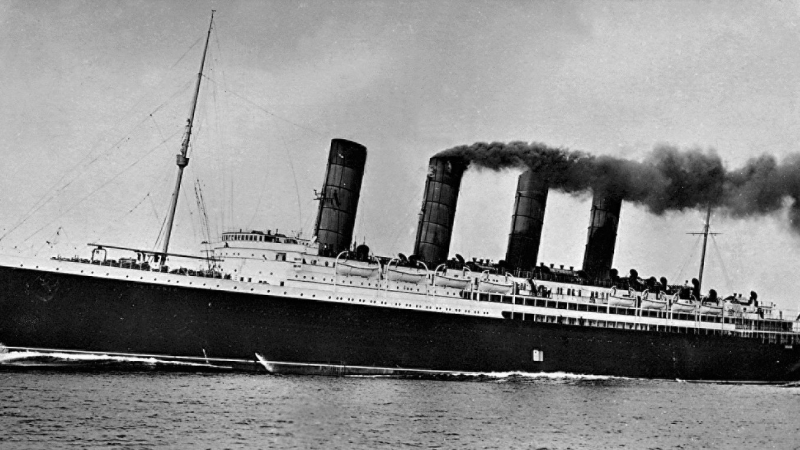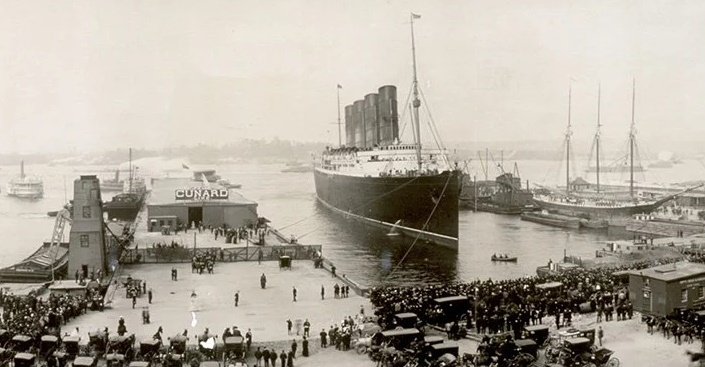The Lusitania was one of the fastest ships in the world at the time
One of the interesting facts about Lusitania and its 1915 sinking is that RMS Lusitania (named after the Roman province in Western Europe that corresponded to modern-day Portugal) was a British ocean liner that was launched in 1906 and won the Blue Riband award for the fastest Atlantic crossing in 1908. It was the world's largest passenger ship for a short time until the Mauretania was completed three months later.
Cunard formed a committee to decide on the new ship's design, with James Bain, Cunard's Marine Superintendent, as its chairman. Rear Admiral H. J. Oram, who worked on ideas for steam turbine-powered ships for the Royal Navy, and Charles Parsons, whose company Parsons Marine was now developing turbine engines, were among the other participants.
Parsons claimed that he could construct engines capable of reaching speeds of 25 knots (46 km/h; 29 mph), which would necessitate 68,000 shaft horsepower (51,000 kW). The largest turbine sets ever built were 23,000 shp (17,000 kW) for the Dreadnought battleship and 41,000 shp (31,000 kW) for Invincible-class battlecruisers, implying that the engines would be of a new, untested design. Turbines have the advantage of producing less vibration than reciprocating engines and providing higher reliability in high-speed operation while using less fuel. It was decided to conduct an experiment by installing turbines on Carmania, which was already under construction. As a result, the ship is 1.5 knots (2.8 km/h; 1.7 mph) quicker than her conventionally powered sister Caronia with predicted benefits in passenger comfort and operating economy.
The ship made its inaugural trip on September 7, 1907, traveling from Liverpool, England, to New York City. The Lusitania was one of the fastest ships in the world at the time. It earned the Blue Riband for quickest Atlantic crossing the following month, averaging over 24 knots. The Mauretania would eventually win the Blue Riband, and the two ships would compete for it on a regular basis.










